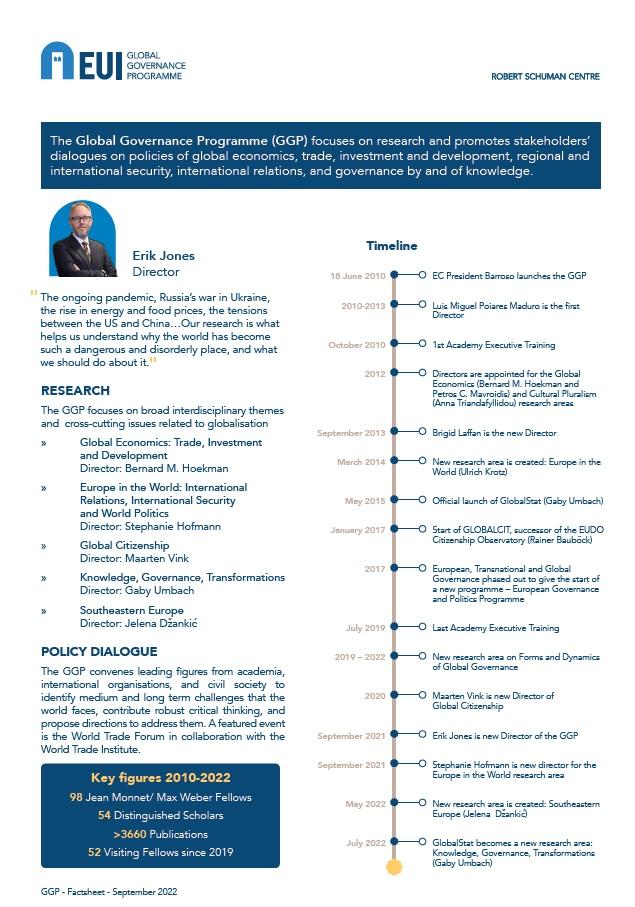The Global Governance Programme is one of the flagship programmes of the Robert Schuman Centre for Advanced Studies (RSCAS) at the European University institute (EUI). It was launched in 2010 in response to a growing need for global governance in an ever more interconnected and multipolar world.
Many of the big challenges facing our contemporary societies can only be addressed through cooperation across borders, involving states, international organisations, the civil society and private actors. The Programme, as the EUI’s response to regional and international cooperation developments and challenges, focuses on five broad interdisciplinary and cross-cutting themes related to globalisation:
- Global Economics: Trade, Investment and Development

- Europe in the World: International Relations, International Security, World Politics
- Global Citizenship
- Knowledge, Governance, Transformations
- Southeastern Europe
- Cultural Pluralism
In all of these areas established and early career scholars research, write on and discuss, within and beyond academia, issues of global governance. With its three dimensions, Research, Policy and Trainings, the Programme aims to serve as a bridge between the world of research and the policy making dimension.
The research conducted at the Global Governance Programme aims to identify the medium and long term challenges that the world faces and possible directions to address them.
By fostering debates between the worlds of research and policy the Programme seeks to contribute robust critical thinking to questions of policy and institutional design.
For ten years before its closure in July 2019, the Programme’s Academy of Global Governance had offered a unique executive training model that combines academic, research-based knowledge and evidence-based practice.
In January 2018 the European, Transnational and Global Governance research area directed by Brigid Laffan, has merged into the new European Governance and Politics Programme (EGPP).
From 2019 until 2022 the Programme hosted the Forms and Dynamics of Global Governance research area.

Funded by the European Union. Views and opinions expressed are however those of the author(s) only and do not necessarily reflect those of the European Union or the European Education and Culture Executive Agency (EACEA). Neither the European Union nor EACEA can be held responsible for them.

